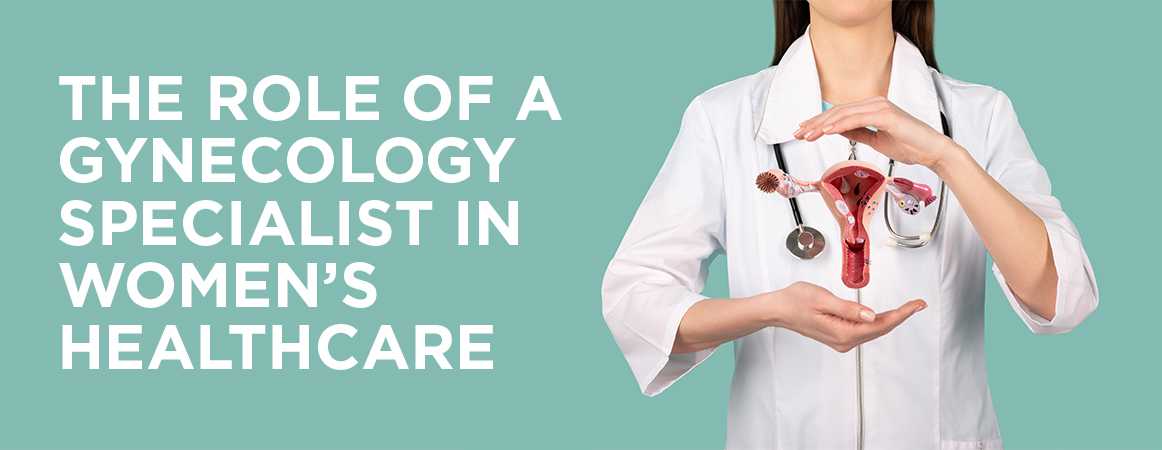
Gynecologists are important to the healthcare of women, offering them ongoing support and vital medical care. The female reproductive system, which includes the ovaries, uterus, cervix, and vagina, is the primary emphasis of a gynecologist.
A gynecologist provides medical care and treatment for women of all ages, from adolescence through menopause. The role of a gynecologist involves various responsibilities, including:
Gynecologists carry out a variety of procedures to diagnose, control, and treat a variety of reproductive system conditions. Gynecologists frequently carry out the following procedures:
Pap smear: A screening test used to detect abnormal cells in the cervix that may lead to cervical cancer.
Pelvic exam: A physical exam that assesses the reproductive organs for any abnormalities or signs of disease.
Colposcopy: A diagnostic procedure that uses a colposcope to examine the cervix and vagina for any abnormal cells or lesions.
Biopsy: A procedure that involves removing a small tissue sample from the reproductive organs for further examination and diagnosis.
Hysteroscopy: A procedure that involves inserting a thin, lighted tube through the vagina to examine the uterus for any abnormalities or conditions.
Endometrial ablation: A procedure that uses various techniques, such as heat or laser, to destroy the lining of the uterus to manage heavy menstrual bleeding.
Hysterectomy: A surgical procedure that involves removing the uterus, either partially or completely, to treat conditions such as uterine fibroids, endometriosis, or cancer.
Tubal ligation: A surgical procedure that involves blocking or sealing the fallopian tubes to prevent pregnancy.
Intrauterine device (IUD) insertion: A contraceptive method that involves inserting a small device into the uterus to prevent pregnancy.
Gynecologists may also perform other procedures such as dilation and curettage (D&C). It is essential to consult with a gynecologist to discuss any concerns or issues related to reproductive health and determine the appropriate course of treatment.
Preventative Care
One of the essential roles of a gynecologist is to provide preventative care. Regular check-ups help women maintain optimal reproductive health by identifying potential issues before they become more serious.
During these visits, the gynecologist may perform a pelvic exam or breast exam. Additionally, the gynecologist may discuss contraception options, sexual health, and lifestyle habits that can impact a woman’s reproductive health.
Pregnancy and Childbirth
Gynecologists are also responsible for managing pregnancy and childbirth. They help women prepare for pregnancy by providing preconception care, which includes discussing healthy lifestyle habits, prenatal vitamins, and family planning.
During pregnancy, they monitor the health of both the mother and baby, conduct routine tests, and manage any potential complications. Gynecologists also assist with childbirth, either by delivering the baby themselves or by working with an obstetrician.
Menopause Management
As women age, they go through menopause, a natural process that marks the end of the reproductive years. Gynecologist specialists in Karachi also assist women in managing the symptoms associated with menopause, such as hot flashes, night sweats, and vaginal dryness. They may also discuss hormone replacement therapy, lifestyle changes, and other treatment options to help alleviate these symptoms and improve quality of life.
Gynecology specialists play an essential role in women’s healthcare. Women can keep their reproductive health at its best with regular visits to a gynecologist, and potential complications can be avoided with early diagnosis and treatment. Women must consider their reproductive health and schedule regular visits to a gynecologist.
Dehydration occurs when your body loses more fluids than it takes in, leading to an…
Recovering from appendix surgery, also known as an appendectomy, requires careful attention to diet and…
Pakistan has experienced severe heat waves in recent years, with Karachi frequently being one of…
When it comes to cardiac care, selecting the right heart surgeon in Pakistan is crucial.…
Dealing with diarrhea, commonly referred to as loose motion, can be distressing and inconvenient. Understanding…
Parenthood, especially during the newborn phase, involves navigating various challenges, one of which is cluster…